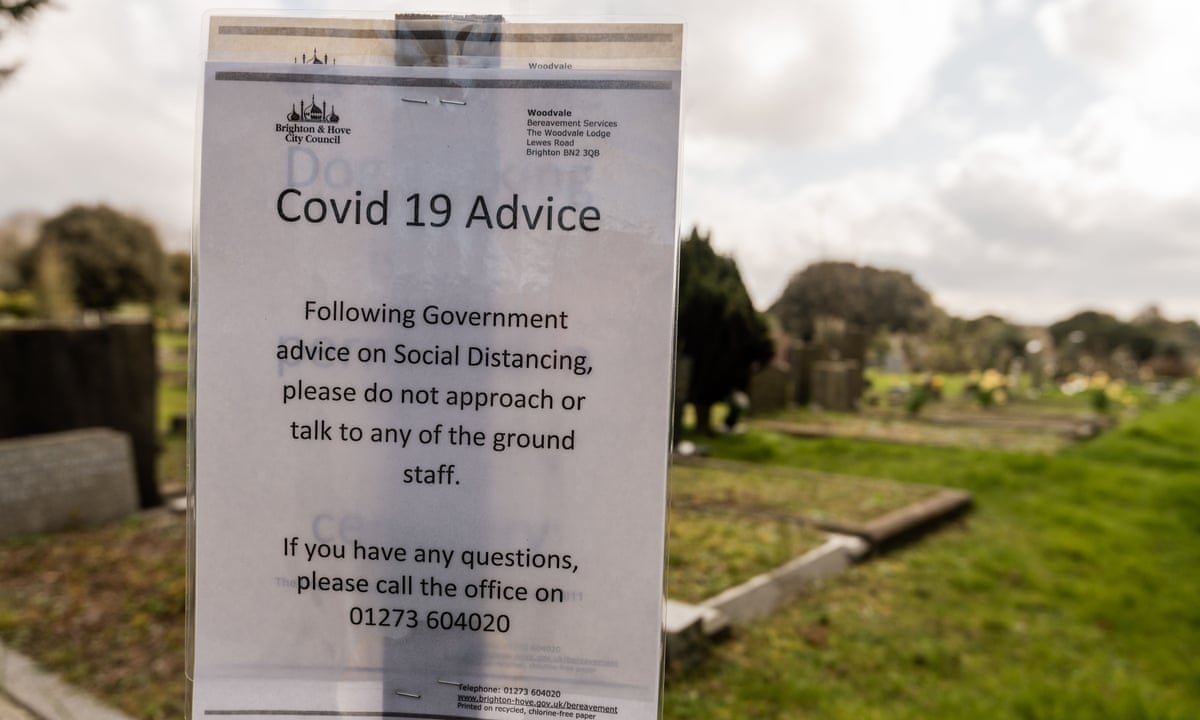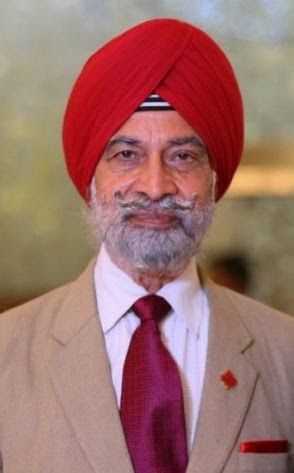DESIBUZZCanada
Events Listings
Dummy Post

International Day Of Yoga To Be Virtually Celebrated Saturday At 4pm

CANCELLED: Coronavirus Fears Kills Surrey’s Vaisakhi Day Parade

ADVERTISE WITH US: DESIBUZZCanada Is The Most Read South Asian Publication Online

SURREY LIBRARIES: Get Technology Help At Surrey Libraries

WALLY OPPAL: Surrey Police Transition Update On Feb. 26

GONE ARE THE DAYS - Feature Documentary Trailer

Technology Help At Surrey Libraries

Birding Walks

Plea Poetry/short Story : Youth Contest

International Folk Dancing Drop-in Sessions
COVID-19 AND SIKH DEATH RITUALS: Soul’s Journey To Next Life Becoming Marred By The Pandemic
- June 16, 2020

With COVID – 19, dead bodies are piling up in the mortuaries, funeral homes and even refrigerated trucks. In India relatives are not even claiming the dead bodies. Funerals are being held by the administration without any rituals. It is time to think that do we actually need these expensive rituals. In Sikhism the soul itself is not subject to death. Death is only the progression of the soul on its journey from God, through the created universe and back to God again.
By DR. KALA SINGH (PRAVASI RATTAN)
Death rituals are connected with the final disposition of the body through burial or cremation. Depending on culture and religion, rituals differ from near death rituals to actual death, washing and cleaning the body to final disposition. In most religions death rituals are religious in nature that are intended to help the soul of the deceased reach the afterlife, resurrection or reincarnation. Common cultural motivations include mourning the deceased, celebrating their life, and offering support and sympathy to the bereaved family.
With COVID – 19, dead bodies are piling up in the mortuaries, funeral homes and even refrigerated trucks. In India relatives are not even claiming the dead bodies. Funerals are being held by the administration without any rituals. It is time to think that do we actually need these expensive rituals.
In Sikhism the soul itself is not subject to death. Death is only the progression of the soul on its journey from God, through the created universe and back to God again.
Near death rituals differ from family to family. Some read Sukhmani Sahib, Jap Ji Sahib or simply recite "Waheguru” to console themselves and the dying person. When a death occurs, they exclaim "Waheguru, Waheguru, Waheguru".
The Sikh funeral is known as Antam Sanskar and the format vary widely. Before a Sikh funeral service, the body is bathed and dressed in clean clothing. In most cases body is dressed in new clothes and dead body is offered shawls and money. The articles of Sikh faith, called the Kakars, which the person would have worn during his or her life as an Amritdhari (initiated) Sikh, should not be taken off nor the hair cut or removed from any part of the body.
On the day of the cremation, the body is taken to the Gurdwara or home, where Shabads (hymns) from the Guru Granth Sahib are recited which induce feeling of consolation and courage. This service normally takes from 30 to 60 minutes. At the conclusion of the service, an Ardas is said before the body is taken to the cremation site.
Rituals at the point of cremation differ from country to country. In countries outside India body is taken to the funeral home where a few Shabads are sung and final speeches are made about the deceased person. Then the Kirtan Sohila (night time prayer) is recited and finally Ardas called the "Antim Ardas" ("Final Prayer") is offered. The eldest son or a close relative generally starts the cremation process by lighting the fire or pressing the button for the burning to begin. This service usually lasts about 30 to 60 minutes. In India Body is taken to crematorium where Kirtan Sohila is recited and finally Ardas called the "Antim Ardas" ("Final Prayer") is offered before lighting the fire. Some put ghee in the mouth of the dead.

The ashes are later collected and disposed by some families by immersing them in river Sutlej at Gurudwara Patal Puri or in the nearest river. Sikhs do not erect monuments over the remains of the dead.
After the cremation ceremony, there may be another service at the Gurudwara or at the home of the deceased depending upon family and the country. In India some families start Seahj Path and others Akhand Path. The Bhog ceremony is held on tenth day or whichever is feasible at the home of the deceased or Gurudwara wherever the Path was started and again Antim Ardas is done. Bhai Sahib (Priest) in Ardas prays that the benefit of the Path goes to the soul of the deceased and Waheguru grant a place to the departed soul in His Lotus Feet. Clothes, blanket, bed sheets and utensils are offered at that time as if they will be used by the departed soul in the next world. Sehaj or Akhand Path is again held before the completion of one year and same Ardas is held again. Sehaj or Akhand Path is again held every year or every five depending upon the family and same Ardas is done every time. Langar is offered to all at these ceremonies and offerings made to the Bhai Sahibs (Priests).
ਜੇ ਮਿਰਤਕ ਕਉ ਚੰਦਨੁ ਚੜਾਵੈ ॥ਉਸ ਤੇ ਕਹਹੁ ਕਵਨ ਫਲ ਪਾਵੈ ॥ AGGS 1160
Je Miratak Ko Chandan Charravai || Os Te Kehahu Kavan Fal Pavai ||
ਜੇ ਮਿਰਤਕ ਕਉ ਬਿਸਟਾ ਮਾਹਿ ਰੁਲਾਈ ॥ਤਾਂ ਮਿਰਤਕ ਕਾ ਕਿਆ ਘਟਿ ਜਾਈ ॥੩॥
Je Miratak Ko Bisata Mahi Rulai ||Taan Miratak Ka Kia Ghat Jai ||3||
ਕਹਤ ਕਬੀਰ ਹਉ ਕਹਉ ਪੁਕਾਰਿ ॥ਸਮਝਿ ਦੇਖੁ ਸਾਕਤ ਗਾਵਾਰ ॥ ਦੂਜੈ ਭਾਇ ਬਹੁਤੁ ਘਰ ਗਾਲੇ ॥ਰਾਮ ਭਗਤ ਹੈ ਸਦਾ ਸੁਖਾਲੇ ॥੪॥੪॥੧੨॥
Kehat Kabir Hao Keho Pukar ||Samajh Dekh Sakat Gavar || Dujai Bhae Bahut Ghar Galae || Ram Bhagat Hai Sda Sukhalae ||4||4||12||
If a corpse is anointed with sandalwood oil, what good does it do? If a corpse is rolled in filth, what does it lose from this? Kabir says, I proclaim this out loud, behold, and understand, you ignorant, faithless cynic, the love of duality has ruined countless homes. The God's devotees are forever in bliss.
Gurmat is against dressing dead body in new expensive clothes, offering shawls, money and expensive casket. Even Sikh Rehat Maryada says same.
ਇਕ ਦਝਹਿ ਇਕ ਦਬੀਅਹਿ ਇਕਨਾ ਕੁਤੇ ਖਾਹਿ ॥ਇਕਿ ਪਾਣੀ ਵਿਚਿ ਉਸਟੀਅਹਿ ਇਕਿ ਭੀ ਫਿਰਿ ਹਸਣਿ ਪਾਹਿ ॥ AGGS 648
Ek Dajheh Ek Dabiah Ekna Kutae Khahi || Ek Pani Vich Osatiah Ek Bhi Fir Hasan Pahi ||
ਨਾਨਕ ਏਵ ਨ ਜਾਪਈ ਕਿਥੈ ਜਾਇ ਸਮਾਹਿ ॥੨॥
Nanak Ev N Japee Kithai Jae Samahi ||2||
Some dead bodies are cremated, some buried, eaten by dogs, thrown into water or thrown into a well. It does not matter to the dead body how it is disposed though different people use different ways of disposing them. Nanak says it does not matter how dead body is disposed of, no one can know where the soul goes after death. The philosophy in different religions say that the soul will get in heaven, get mukti or on judgment day will be judged only if it is disposed off in certain way. Nanak says it will reach its destination irrespective of mode of disposal.
ਸੁੰਨਹੁ ਖਾਣੀ ਸੁੰਨਹੁ ਬਾਣੀ ॥ ਸੁੰਨਹੁ ਉਪਜੀ ਸੁੰਨਿ ਸਮਾਣੀ ॥ SGGS 1037
Sunnahu Khani Sunnahu Bani || Sunnahu Opaji Sunn Samani ||
Everything is created from Primal Void and will merge with Primal Void after death.
ਪਵਨੈ ਮਹਿ ਪਵਨੁ ਸਮਾਇਆ ॥ਜੋਤੀ ਮਹਿ ਜੋਤਿ ਰਲਿ ਜਾਇਆ ॥ਮਾਟੀ ਮਾਟੀ ਹੋਈ ਏਕ ॥ਰੋਵਨਹਾਰੇ ਕੀ ਕਵਨ ਟੇਕ ॥੧॥ SGGS 885
Pavnai Meh Pavan Samaya || Joti Meh Jot Ral Jaya || Mati Mati Hoi Ek || Rovanehare Ki Kavan Tek ||1||
ਕਉਨੁ ਮੂਆ ਰੇ ਕਉਨੁ ਮੂਆ ॥ਬ੍ਰਹਮ ਗਿਆਨੀ ਮਿਲਿ ਕਰਹੁ ਬੀਚਾਰਾ ਇਹੁ ਤਉ ਚਲਤੁ ਭਇਆ ॥੧॥ ਰਹਾਉ ॥
Koun Mua Re Koun Mua || Breham Giayni Mil Karhu Bichara Eh Tao Chalat Bhya ||1|| Rehao ||
ਅਗਲੀ ਕਿਛੁ ਖਬਰਿ ਨ ਪਾਈ ॥ਰੋਵਨਹਾਰੁ ਭਿ ਊਠਿ ਸਿਧਾਈ ॥ਭਰਮ ਮੋਹ ਕੇ ਬਾਂਧੇ ਬੰਧ ॥ਸੁਪਨੁ ਭਇਆ ਭਖਲਾਏ ਅੰਧ ॥੨॥
Agali Kich Khabar N Payi || Rovanehar Bh Uth Sidhai || Bharam Moh Ke Bandhe Bandh || Supan Bhya Bhakhlaye Andh ||2||
ਇਹੁ ਤਉ ਰਚਨੁ ਰਚਿਆ ਕਰਤਾਰਿ ॥ਆਵਤ ਜਾਵਤ ਹੁਕਮਿ ਅਪਾਰਿ ॥ਨਹ ਕੋ ਮੂਆ ਨ ਮਰਣੈ ਜੋਗੁ ॥ਨਹ ਬਿਨਸੈ ਅਬਿਨਾਸੀ ਹੋਗੁ ॥੩॥
Eh Tao Rachan Rachia Kartar || Avat Javat Hukam Apar || Neh Ko Mua N Marnai Jog || Neh Binsai Abinasi Hog ||3||
ਜੋ ਇਹੁ ਜਾਣਹੁ ਸੋ ਇਹੁ ਨਾਹਿ ॥ਜਾਨਣਹਾਰੇ ਕਉ ਬਲਿ ਜਾਉ ॥ਕਹੁ ਨਾਨਕ ਗੁਰਿ ਭਰਮੁ ਚੁਕਾਇਆ ॥ਨਾ ਕੋਈ ਮਰੈ ਨ ਆਵੈ ਜਾਇਆ ॥੪॥੧੦॥
Jo Eh Janhu So Eh Nahi || Jananehare Kao Bal Jao || Kahu Nanak Gur Bharam Chukaya || Na Koi Marai N Avai Jaya ||4||10||
When someone dies physical body of five elements merge with the five elements of earth, the breath merges into the air, soul blends into the supreme soul, people lament in misconception for the dead. One can discuss with the enlightened ones that it is the body which dies but soul never dies. No one knows what happens after death. The one who is lamenting will also die one day. Mortal beings are bound by the bonds of doubt and attachment. The union of body and soul is for a short time like a dream. The Creator created this creation. Whoever is born will die one day according to the Command (Hukam) of the God, but the soul does not perish; it is immortal. It is not what you think of the soul that it reincarnates. Nanak says the Guru has dispelled my doubt that the soul does not reincarnate. I am a sacrifice to the one who knows this.
The soul (Atma, Jot) created by and from the God and will merge with the God after death of the body irrespective of the way dead body is disposed of.
ਪ੍ਰਭ ਤੁਮ ਤੇ ਲਹਣਾ ਤੂੰ ਮੇਰਾ ਗਹਣਾ ॥ ਜੋ ਤੂੰ ਦੇਹਿ ਸੋਈ ਸੁਖੁ ਸਹਣਾ ॥ ਜਿਥੈ ਰਖਹਿ ਬੈਕੁੰਠੁ ਤਿਥਾਈ ਤੂੰ ਸਭਨਾ ਕੇ ਪ੍ਰਤਿਪਾਲਾ ਜੀਉ ॥ SGGS 106
Prabh Tum Te Lehna Toon Mera Gehana || Jo Toon Deh Soee Sukh Sehana || Jithai Rakhi Baikunth Tithaee Toon Sabhna Ke Pratipala Jeeo ||3||
O God, I get all blessings from you; You are source of my spiritual grace. Whatever You give me (Happiness or Unhappiness), I accept it as eternal happiness. O Cherisher of all, in whatever condition You keep me, is heaven for me.
ਕਵਨੁ ਨਰਕੁ ਕਿਆ ਸੁਰਗੁ ਬਿਚਾਰਾ ਸੰਤਨ ਦੋਊ ਰਾਦੇ ॥ ਹਮ ਕਾਹੂ ਕੀ ਕਾਣਿ ਨ ਕਢਤੇ ਅਪਨੇ ਗੁਰ ਪਰਸਾਦੇ ॥੫॥ SGGS 969
Kavan Narak Kia Surag Bichara Santan Dou Radhe || Ham Kahoo Ki Kan N Kadtate Apne Gur Parsade ||5||
ਅਬ ਤਉ ਜਾਇ ਚਢੇ ਸਿੰਘਾਸਨਿ ਮਿਲੇ ਹੈ ਸਾਰਿੰਗਪਾਨੀ ॥ ਰਾਮ ਕਬੀਰਾ ਏਕ ਭਏ ਹੈ ਕੋਇ ਨ ਸਕੈ ਪਛਾਨੀ ॥੬॥੩॥
Ab Tao Jae Chadte Singhasan Milae Hai Saringpani || Ram Kabira Ek Bhae Hai Koe N Sakai Pachani ||6||3||
The Guru (Sant) rejects both hell and heaven. By the Grace of my Guru I have no obligation to either of them. By the grace of the Guru (Guru’s spiritual teachings and wisdom) I am now truthful in my life. The God and Kabir have become one. No one can tell them apart.
ਜੀਵਨ ਮੁਕਤਿ ਸੋ ਆਖੀਐ ਮਰਿ ਜੀਵੈ ਮਰੀਆ ॥ 449
Jivan Mukat So Aakhiai Mar Jivai Maria ||
Those who kill their ego while alive are said to be Jivan Mukta, liberated while yet alive.
ਜਿਸ ਕੈ ਅੰਤਰਿ ਰਾਜ ਅਭਿਮਾਨੁ ॥ ਸੋ ਨਰਕਪਾਤੀ ਹੋਵਤ ਸੁਆਨੁ ॥ ਜੋ ਜਾਨੈ ਮੈ ਜੋਬਨਵੰਤੁ ॥ ਸੋ ਹੋਵਤ ਬਿਸਟਾ ਕਾ ਜੰਤੁ ॥ SGGS 278
Jis Kai Antar Raj Abhiman || So Narakpati Hovat Suan || Jo Janai Mai Jobanvant || So Hovat Bista Ka Jant ||
ਆਪਸ ਕਉ ਕਰਮਵੰਤੁ ਕਹਾਵੈ ॥ ਜਨਮਿ ਮਰੈ ਬਹੁ ਜੋਨਿ ਭ੍ਰਮਾਵੈ ॥ ਧਨ ਭੂਮਿ ਕਾ ਜੋ ਕਰੈ ਗੁਮਾਨੁ ॥ ਸੋ ਮੂਰਖੁ ਅੰਧਾ ਅਗਿਆਨੁ ॥
Apas Ko Karamvant Kehavai || Janam Marai Bahu Jon Bhramavai || Dhan Bhoom Ka Jo Karai Guman || So Murakh Andha Agian ||
ਕਰਿ ਕਿਰਪਾ ਜਿਸ ਕੈ ਹਿਰਦੈ ਗਰੀਬੀ ਬਸਾਵੈ ॥ ਨਾਨਕ ਈਹਾ ਮੁਕਤੁ ਆਗੈ ਸੁਖੁ ਪਾਵੈ ॥੧॥
Kar Kirpa Jis Kai Hirdai Garibi Basavai || Nanak Eha Mukat Agai Sukh Pavai ||1||
One who has the pride of power, dwell in hell like a dog. Those who deem to have the beauty of youth are like maggot in filth as their life is full of dirty worldly passions. Those who claim to act virtuously, but actually are not, get into the cycle of spiritual (Moral) life and death. Those who take pride in wealth and lands are ignorant fools as such things never stay forever. Nanak says whose mind (Mann) is mercifully blessed with abiding humility lives a peaceful life forever and is liberated here and now. Guru mentions liberation (Eha Mukti) now, not after death. So mention of hell, dog, maggot in filth and ignorant fool is now, not after death.
Gurmat don’t believe in heaven and hell after death. They are here, now in this world. Someone living Truthful Life in Hukam of God is in heaven now and one living life of falsehood in Maya is suffering and living in hell now. Gurmat don’t believe in reincarnation and Mukti after death. Gurmat talks of spiritual (Moral) death many times a day and reincarnate in different forms every day. Gurmat talks of liberation (Eha Mukti) now by controlling ego, not after death.
Conclusion: All death rituals of beautifying the dead body, expensive casket, offerings of shawla, keeping kakkars the Sikh symbols - comb, kachha, karha, kirpan with dead body, desi ghee in the mouth of corpse, Sehaj or Akhand Path, Langer and offerings of clothes, blankets, utensils, (Ardas) prayer that the benefit of the Path goes to the soul of the deceased and Waheguru grant a place to the departed soul in His Lotus Feet at Bhog ceremony are meaningless to the dead body. Heaven and Mukti is here now while living by living truthful life. Because of COVID -19 relatives are not even claiming the body for funeral. No one is performing any of the rituals now. No one is keeping kakkars the Sikh symbols - comb, kachha, karha, kirpan with dead body. No one is bothered about the disposal of the ashes and bones and soul of the dead. We need to think that if we are OK with it now why can’t we continue with simple funerals without any expensive rituals forever. Sehaj or Akhand Path can be held as part of grieving process for the family, but definitely not for the benefit of the dead person. It also may help when someone loved dies we naturally question the meaning of life and death, why did this person die? Why now? Why this way? Why does it have to hurt so much? What happens after death?

Dr. Kala Singh did MBBS degree from Delhi University India. He worked as Psychiatric Doctor in Africa and in Vancouver Canada. He gives Sikh religious and spiritual counseling and psychotherapy to clients with stress, depression, anxiety and other mental health problems. For more information he can be contacted at 604 327 5253












